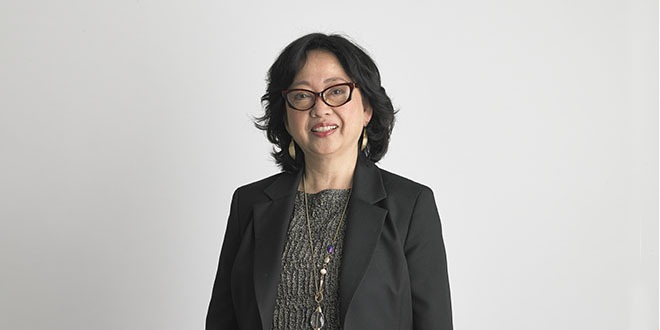Canadians with type 2 diabetes write back to their younger selves, to share personal insights and reflect on their experience of living with diabetes and starting on insulin therapy. In this post, Aida reflects on living with diabetes.
“Mom!” both Aida’s son and daughter protested, with more than a little accusation in their voices. The Canadian family was on vacation in New York City a few years ago, about to enjoy a delicious meal in an Italian restaurant.
What was the fuss about? Aida, who has type 2 diabetes, had revealed to her family that her doctor had recently told her that she needed to add insulin to her treatment plan to manage her blood sugar levels. But at the restaurant she had just ordered a decidedly unhealthy pasta dish. Her adult children pointed out that there were plenty of healthy choices on the menu. They were very upset that she was not looking after herself properly.
Unfortunately, not looking after herself with regard to food had become a long-ingrained habit. It started when she was an underweight, young-looking teenager growing up in the Philippines. Food was a tool for gaining weight and looking older. When her parents sent her to university in New York City, a cornucopia of packaged and prepared foods paraded through her kitchen: TV dinners, frozen foods, potato chips, sweets. “I think my love of chocolate cake for breakfast started there,” recalls Aida, now 67.
When Aida was diagnosed with type 2 diabetes 11 years ago, at 56, she was reluctant to change her diet. In fact, at the beginning, she was so resistant to accepting it that she did not tell anyone in her family about it. Aida continued to eat as always. She had no symptoms and so it didn’t feel necessary to make any changes.
It took seven years and three more visits to the doctor before Aida was told to begin using insulin. During that time she did tell her family about her condition, but continued to eat irresponsibly. “My kids and my husband would nag me, which was annoying,” Aida remembers. “Sometimes I did the opposite of what I should have been doing.”
The consultation that finally caused Aida to change her ways was with a dietician who managed to impress upon Aida how much careful attention to her diet and exercise would improve her long-term health. Today, Aida’s blood sugar is well controlled through a combination of diet, exercise and medication, including insulin. Now retired, she’s a passionate advocate of medicines becoming equally accessible to everyone, particularly those with few financial resources.
Aida wants to be a champion of wellness, not a victim of disease – and to confront it head-on. This radical shift in her mindset transpired because of a few key elements that she wishes she had known about earlier. Here is her letter to her younger self at 57, a year after she was diagnosed with diabetes.
Dear Aida,
Secrecy is your mandate. Don’t let them know at work and don’t let them know at home. You have no pain. It just seems easier this way. I know.
But Aida, there’s something going on here besides sheer inertia. You have a big stubborn streak that is preventing you from truly taking care of yourself. You just don’t want to be told what to do – by anyone.
Education is what you desperately need. Read books and attend seminars. The more you actually know about diabetes and how it works, the less you will be reacting rebelliously against your beloved children’s and husband’s suggestions and reminders. Knowledge is power.
Unlearning a lifetime of bad habits and making lifelong change is not easy. The information out there about managing diabetes can be overwhelming – but you can figure out what works for you.
Here are some tips and tricks. At social events, eat before you go. Don’t go there hungry, which will cause you to snack on the wrong food. You can still chat and tell stories with a drink in your hand. Just make it water with a lemon slice.
Believe it or not you can learn to eat things, like celery, that you never could stomach before. Eventually you’ll put turmeric on your food, drink lemon water in the morning and make smoothies containing kale. Yes, kale! As much as your taste buds seem to insist on chocolate cake and béarnaise sauce, they can learn to love other foods.
The final tip: exercise. It’s honestly going to be a great experience for you, especially once your kids give you a gym membership as a Mother’s Day present. Proper nutrition, exercise, learning to handle stress and maintaining spiritual health are the key tools to successfully manage your diabetes.
A champion of wellness,
Aida
This story has been edited by Ellyn Spragins and shared with support from Novo Nordisk Canada. The views and opinions expressed are not representative of Novo Nordisk, and should not be considered treatment advice. Novo Nordisk has permission to share this letter and included personal details.
 Diabetes Care Community Learn, connect and care
Diabetes Care Community Learn, connect and care




